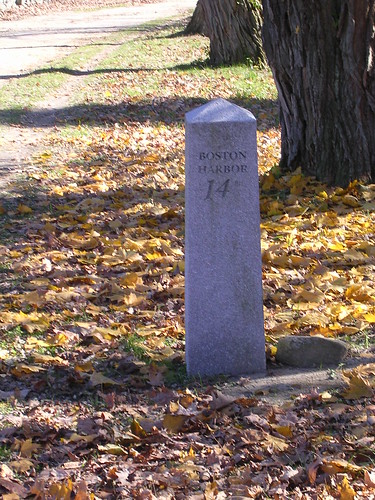Friday, April 28, 2006
Back to Normal - For Now
Actually got back in Wednesday, but work has been nuts this week.
But I do have a new Friday Furo Questus up.
Monday, April 24, 2006
Moon Over Parma
Until then, check out some random questions I had. And be excellent to each other.
Random Questions
And when we catch people thusly breaking the law, why don't we throw the book at them?
Does anyone really understand why gas prices are high, and going higher?
Is the world really ready for sheep-side advertising?
Does anyone besides me think that I bear a distinct resemblance to Campion Bond?
Should I be worried about that resemblance?
Does this mean I'm cartoonish?
If someone draws a cartoon based on me, I could concievably sue based on copyright infringement. But If I take on the appearance of a cartoon character after it was created - does that mean they can sue me for copyright infringement?
Do I have issues?
Do I ask too many questions?
Friday, April 21, 2006
The Friday Furo Questus
And that is a problem. And I'm not the only one who thinks so.
I don't know what the answer to the Iran crisis is. All I am certain is that the longer the clock ticks, the more war becomes the only remaining option. A nuclear-armed Iran presents a whole new problem, for there can be no balance of terror with a power that regards its own population as expendable.
The time is rapidly approaching when our post-Holocaust vow of "never again" will be put to its sorest test. Iran's Ahmadinejad has made several public promises of destroying Israel. While a common promise of Arabic leaders, it never has been a credible threat - until now.
I can hear the ghost of Hitler laughing.
The Friday Furo Questus is up at The Wasatch Front.
Thursday, April 20, 2006
Iran: Four Scenarios
FOUR SCENARIOS [Stanley Kurtz]
Our first foreign policy priority has to be preventing Iran from obtaining nuclear weapons. Is Iraq a major priority? Absolutely. Is democracy in Iraq an important goal? Certainly, although the critical advances in democracy will only come over the long term. In the short term, Iran is our greatest challenge. Our goal should be to give the president maximum flexibility, by keeping the option of force on the table.The Iran question is usually posed as a choice between the use of force and simply living with Iranian nukes. The problem might be better posed as a choice between four scenarios.
The first scenario is a sufficiently united front at home and abroad in support of force to compel Iran to verifiably abandon its nuclear program. The second scenario is a sufficiently united front at home and abroad in support of force that, if force must be used, the very serious military, economic, and political consequences are minimized. In the third scenario, the president uses force against Iran toward the end of his term, amidst bitter division at home and abroad, when it looks as though Iran is merely months away from a bomb. In the fourth scenario, our bitter divisions at home and abroad tie the president’s hands, and Iran gets the bomb.
So our choice is less between attacking Iran or not, than between whether we will stand together against the threat or not. Standing (sufficiently) together gives us our best chance for peace, as well as our best chance for success in war. Remaining divided will weaken us in war, or force defeat. Yes, it seems impossible at this moment to imagine sufficient unity behind the option of force against Iran. Yet that is what we must work toward. Our best ally in this endeavor is an honest confrontation with the reality of the danger we face.
Politically, our four scenarios create an opportunity for both Republicans and for hawkish Democrats. We should welcome that. If there are Democrats who want to argue that they will be smarter and better than Republicans at the deployment and/or threat of deployment of force against Iran, let them. I want this president, and the next president, of whatever party, to be able to face Iran, North Korea, et al with a credible threat of force.
There will be those who prefer the third and fourth scenarios. They secretly relish the idea of domestic and international outrage at a president who uses force to prevent Iran from getting the bomb. Or, they believe it’s better to simply let Iran get the bomb. Or, they really don’t want to think about the issue, because they don’t want to take the use of force seriously as an option under any circumstances. Their sense of righteousness and superiority depends upon refraining from force. So be it.
I believe that, in the end, an honest debate over the threat we face from Iran will be more likely to unite than divide us. At any rate, that is the debate we must have. A nuclear Iran is the greatest threat we face. So we need to tackle the issue directly and openly, despite the difficulties and divisions that beset us.In the Guardian, Timothy Garton Ash runs with the hawkish scenario and (implicitly) explains to the British why they must break with the United States. The reason? Iran’s potential to recruit suicide bombers among Muslims living in the West. My question for Ash: If this is how Europe ought to view the prospect of preventing Iran from obtaining the bomb, how will Europe stand up to Iran when it actually does get the bomb? Care to game out worst-case scenarios for a world in which Ahmadinejad has nukes?
Posted at 10:15 AM
Wednesday, April 19, 2006
April 19, 1775

By the rude bridge that arched the flood,
Their flag to April's breeze unfurled;
Here once the embattled farmers stood;
And fired the shot heard round the world.
The foe long since in silence slept;
Alike the conqueror silent sleeps,
And Time the ruined bridge has swept
Down the dark stream that seaward creeps.
On this green bank, by this soft stream,
We place with joy a votive stone,
That memory may their deeds redeem,
When, like our sires, our sons are gone.
O Thou who made those heroes dare
To die, and leave their children free, --
Bid Time and Nature gently spare
The shaft we raised to them and Thee.
"Concord Hymn," Ralph Waldo Emerson

The British detachment, 700 strong, that marched up to the villages of Lexington and Concord were not expecting a fight. Their officers expected the show of force would quickly cow the colonials into giving up the cannon and ammunition that the militia had removed from their armory and hidden in the hills around Boston.
They were wrong.
On the Lexington village green, they arrived to find the local militia forming. The British troops fired into the assembling militia, causing them to disperse. The British then re-formed and marched on to the armory at Concord.
At Concord, the local militias of several villages were assembling. Warned by the nighttime rides of Paul Revere and William Dawes, they assembled on the north side of the Concord River, across a small bridge and north of Concord. Most of the supplies from the Concord armory were with them.

The British force marched into Concord and burned the armory, then moved to cross the bridge and continue their expedition. Then they discovered the assembled militias awaiting them. Thinking it at first a bluff, the British tried to send some men across, when someone fired. By the time the exchanges ceased, several men on both sides had fallen to musket balls, and the Revolution had begun in earnest.

Unable to cross the bridge without risking heavy losses, and suddenly aware they were in hostile territory, the British force withdrew the long twenty miles back to Boston. Trapped by the banked and stone-fenced roads, they were peppered every step of the way by Rebel snipers, losing two hundred of their men before reaching the safety of Boston.
Within days, Boston would be encircled. The American Revolution had begun.

Minuteman National Historical Park preserves much of the old original battlesite in Concord; and in Lexington the village green still remains, surrounded by much the same buildings as it was in 1775.
More at Argghhh!
Thursday, April 13, 2006
Quotable: NRO on Iran
Make no mistake: This is not a good option. Iran would probably retaliate with terrorist attacks against U.S. interests around the world, as well as aggressive efforts to destabilize Iraq. But the alternative — letting the mullahs go nuclear — is incalculably worse. For a quarter-century those mullahs have been fighting an undeclared war against the West with the only weapons they had: terrorism and a poisonous ideology. For a quarter-century we have failed to respond. They now stand on the brink of getting a new weapon — and this one will let them threaten the incineration of millions of infidels at the push of a button. Is this something that we — that anyone — should be willing to live with?Hear, hear.
When we whisper, "never again," do we mean it? Are we willing to act in our own best interests?
Or have we abandoned all to the whisperings of the mob and fear of the crowd, and instead let our children deal with the mess we will have made?
There will come a point where we find ourselves pressed into giving up somthing we cannot accept. Then will come war. With Iran aspiring to dominance in the Middle East, the faceoff either occurs now, right now, or it comes later, when Iran has nuclear weapons.
If we wait, the price will be much higher than we can bear - and we will have to pay it.
Wednesday, April 12, 2006
Bitter Harvest
For further reference, see You Reap What you Sow and Plowing Zimbabwe Under.
Fancy that. The Marxist dream is failing, yet again.
From Reuters:
HARARE, April 12 (Reuters) - Zimbabwe's rapid economic decline has triggered desperation among city dwellers that could turn planned opposition protests against President Robert Mugabe's government into a potent force.Mugabe's plan to take over the white-owned farms and return his people to the land - and only his people - has destroyed his nation's economy and created a nation of refugees waiting for their next handout.
Opposition leader Morgan Tsvangirai dramatically raised the stakes last month when he proposed mass protests at a time when the country is battling its worst economic downturn since independence and has the world's highest inflation rate.
"We are on the brink ... and anyone who thinks the political situation is manageable at this rate of economic deterioration is going to be shocked," John Makumbe, a political scientist at Harare's University of Zimbabwe, told Reuters.
"For many people, especially in the urban areas, life has become unaffordable and unbearable and these people are waiting to vent their anger through mass demonstrations," said Makumbe, a critic of the government.
The government, while acknowledging the economic crisis, says it remains optimistic but in private officials say rising prices and unemployment above 70 percent are stoking anger, especially in cities.
Last week Zimbabwe's annual inflation rate, measured through the consumer price index (CPI), jumped to 913.6 percent for the year to March from 782 percent in February.
Experts expect the rate to soar way over 1,000 percent by mid-year and Zimbabwe also faces shortages of fuel, food and foreign currency and breaking sewerage systems, power and water cuts, uncollected domestic garbage and deteriorating roads.
It amounts to the worst economic situation since Mugabe led the country to independence from Britain in 1980 and the time when Zimbabwe was one of Africa's most prosperous states is a distant memory, political and economic analysts say.
What is truly sad about that is that it never had to happen. Before Mugabe, Zimbabwe was a net exporter of food. No more.
Socialism is a failure. Socialism coupled to naked ambition and totalitarian impulses, plus a desire to keep one step ahead of the mob, leads to disaster and dissolution.
Hopefully South Africa can avoid these mistakes. But who knows. Zimbabwe had a lot of potential, too.
Tuesday, April 11, 2006
Iran Joins The Nuke Club
You just made yourselves target #1 for U.S. Strategic Command and everything the Israelis have in their arsenal.
Monday, April 10, 2006
The Long-Lived Lie
No, he didn't. But too many people have too much staked on the idea that he did to ever admit it.
Wednesday, April 05, 2006
Romney's Step Forward?
Hugh Hewitt thinks it's big enough to make him a frontrunner in the '08 race.
[Back to Romneywatch.]
UPDATE:
National Review has previously covered this issue, as a post in the Corner reminded me. There were two pieces:
Pro.... and con.
Tuesday, April 04, 2006
What Is The French Term For "Burn!"?
Lots of over-educated youths with too much black in their wardrobes are desperate to dress up in balaclavas and bandannas and torch things because (now let me word this correctly) they are disillusioned that their government wants to help them get jobs, because when you get a job there is a big danger you might one day lose it, especially if you are crap at it.How quickly indeed. Read the whole thing.
I could have sworn that not long ago French youths were rioting because, thanks to workplace-protection laws so rigid you could dry your pantalons on them, no one under the age of 65 can break into the job market (unless their grand-père is head of the Union of Permanently Picketing Fonctionnaires, in which case there is always room for one more shop steward).
France's youth unemployment rate is consequently a staggering 23 per cent. The government's solution is this: In order to ease employers' worries about hiring graduates and then being stuck with them, regardless of their competency, for life, a new law will allow them to fire anyone under the age of 26 with fewer than two years on the job.
It is this law, designed to help students find work after university, that has them aux barricades. One minute French students are rioting for jobs, the next they are rioting because they might actually get a job but be required to perform well to keep it. How swiftly indignation adapts to circumstance.






